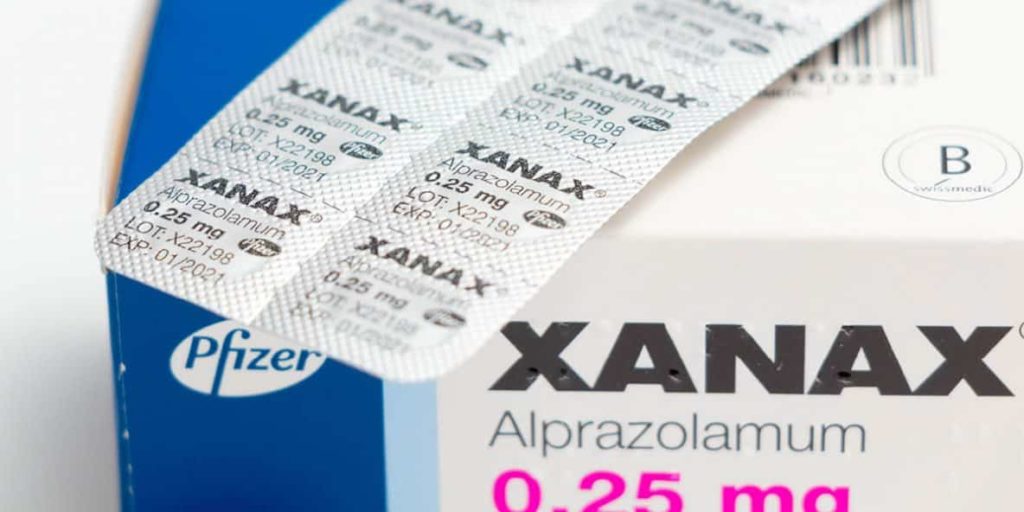While they might appear similar, there is a world of difference between the drug Ativan and Xanax. Both drugs belong to a category known as benzodiazepines. These drugs are used as a treatment for anxiety, panic attacks, and insomnia. However, they have numerous other uses as well. In this article, we will discuss the major differences between Ativan (or lorazepam) and Xanax (or alprazolam) as well as their potential side effects and risks.
Ativan versus Xanax
Ativan (or lorazepam) is a prescription sedative used to treat anxiety, panic attacks, and insomnia. It works by helping you feel calmer, less worried. It also acts as a muscle relaxant. Xanax (also known as alprazolam) is a prescription sedative that is used to treat anxiety, panic attacks, and insomnia. It works by increasing the level of serotonin in the brain.

What is the difference between Ativan and Xanax?
- Sedative Use- Both drugs are sedatives that induce sleep. However, they are used for different purposes. While Xanax is used to treat depression and anxiety, Ativan is used to treat these conditions while also inducing sleep.
- Muscle Relaxant- Xanax and Ativan act as muscle relaxants. This means they relax your muscles so that you do not feel anxious or tense while getting your sleep. –
- Effect- Xanax and Ativan have similar effects. They induce sleep, relax muscles, and are generally safe to use. However, Xanax does have fewer side effects than Ativan.
- Addiction Risk- Both drugs have a low risk of causing addiction. However, they are used for different conditions and have different side effects. Xanax has less side effects and potential risks than Ativan. As such, it is a good choice for people with these conditions who are at high risk of addiction.

Side effects of Ativan and Xanax
- Hallucinations – Common side effects of Ativan and Xanax include hallucinations. While these side effects are uncommon, it is still advisable to consult a doctor before using these drugs.
- Nausea – Nausea is also a common side effect of both Ativan and Xanax. While it is not dangerous, it is a symptom that is unpleasant and should be remedied as soon as possible.
- Sedation – Ativan and Xanax are both sedatives. This means they induce sleep. As such, they are often used to treat insomnia. However, they may make you drowsy, making it difficult for you to drive or perform other activities while still asleep.
- Autonomic Dysfunction – Ativan and Xanax are muscle relaxants. This means they relax your muscles. As such, they are often used to treat panic attacks and anxiety. However, if used for too long, they may cause your autonomic nervous system to become imbalanced.
If you experience these side effects, it is a good idea to stop using these drugs and see a doctor.
How does Ativan and Xanax work?
Both Ativan and Xanax are tranquilizers. They are prescribed to treat anxiety and sleep disorders. They work by increasing the level of serotonin in the brain. During a panic attack, the brain produces abnormally high levels of serotonin that cause you to feel extremely anxious.

The risk of addiction for Ativan and Xanax
Both Ativan and Xanax have a low risk of causing addiction. However, they are used for different conditions and have different side effects. Xanax has less side effects and potential risks than Ativan. All benzodiazepines have a risk of causing addiction. Some have a higher risk of causing addiction than others. As such, clinicians are careful when prescribing benzodiazepines.
Final words: Is Ativan or Xanax the right drug for you?
Both Ativan and Xanax are useful in treating anxiety and sleep disorders. However, Xanax has fewer side effects and as such, is a good choice for people with these conditions who are at high risk of addiction.
- Xanax and Ativan are used to treat anxiety, panic attacks, and insomnia. It is also often prescribed for people with social anxiety disorder and/or panic attacks. If you suffer from any of these symptoms, you can check in with your doctor about whether or not these medications could be beneficial to you.

Knoxville Recovery Center Can Help
Fortunately, help is available for those battling addiction and/or mental health issues. Knoxville Recovery Center offers various services to those struggling in any stage of addiction or mental illness.
Services offered:
Detox – Our on-site detox clinic accommodates and supports clients as the body sheds all residual traces of addictive substances. Clients are under medical supervision during the detox process to ensure that they remain safe and comfortable.
Addiction Treatment – During our addiction treatment program, clients will engage in introductory therapies and exercises that work to prepare them for continued, more intensive treatment outside of our facility. The goal of our addiction treatment track is to stabilize clients so that they are treatment-ready.
Mental Health Treatment – Our mental health treatment program introduces behavioral therapies rooted in self-expression and holistic exercise. Art therapy, music therapy, and yoga are just a few forms of therapy we offer at the center. Our goal is to help the client reclaim their voice and expose them to treatment within a professional facility.
Aftercare Planning – Aftercare is designed for individuals who have benefitted from our introductory addiction services and are transitioning into a more intensive addiction treatment program. Once a client is stabilized, they will be encouraged to pursue continued addiction treatment. Our experienced case managers will then work with our clients to place them in a
If you feel that you or a loved one is struggling and needs help, our specialists are on standby and ready to help. Call Knoxville Recovery Center and speak with an expert today.








